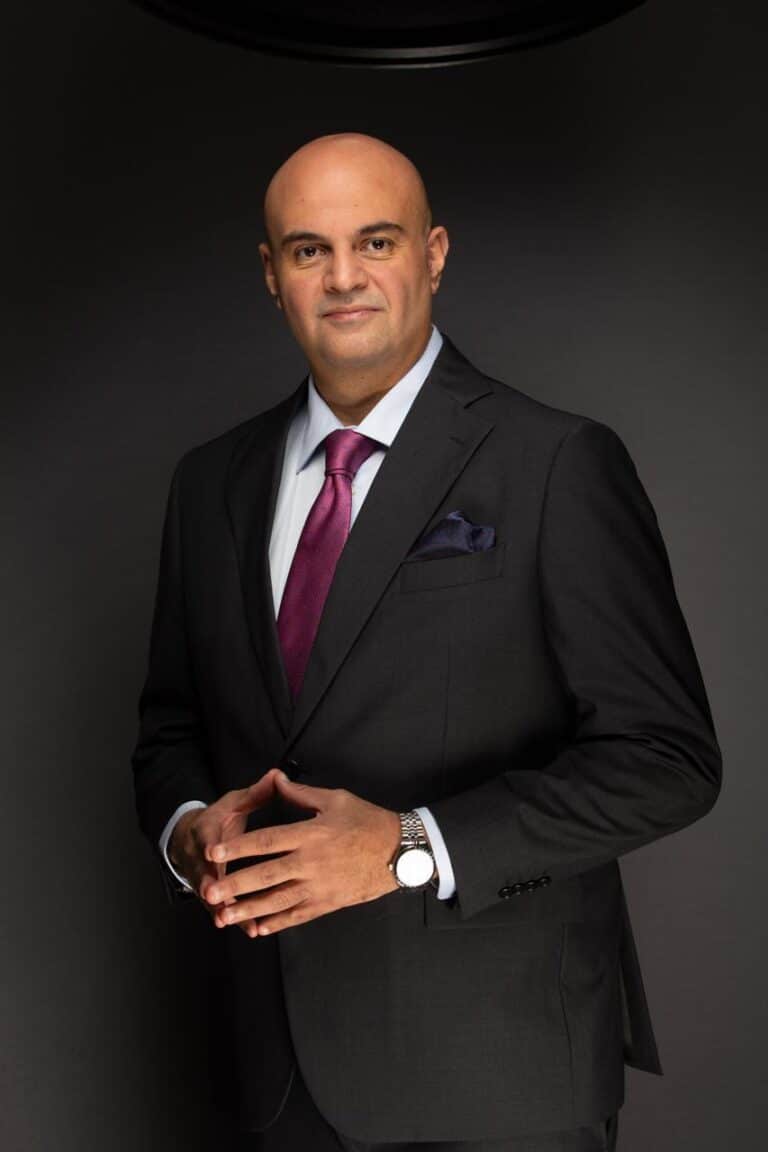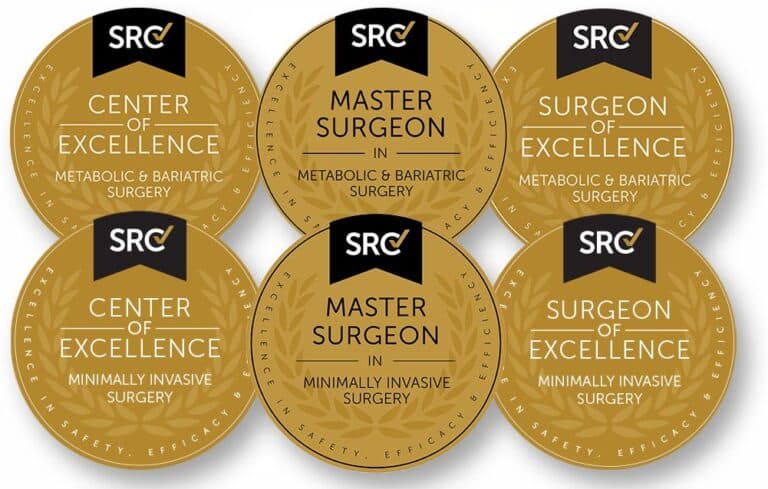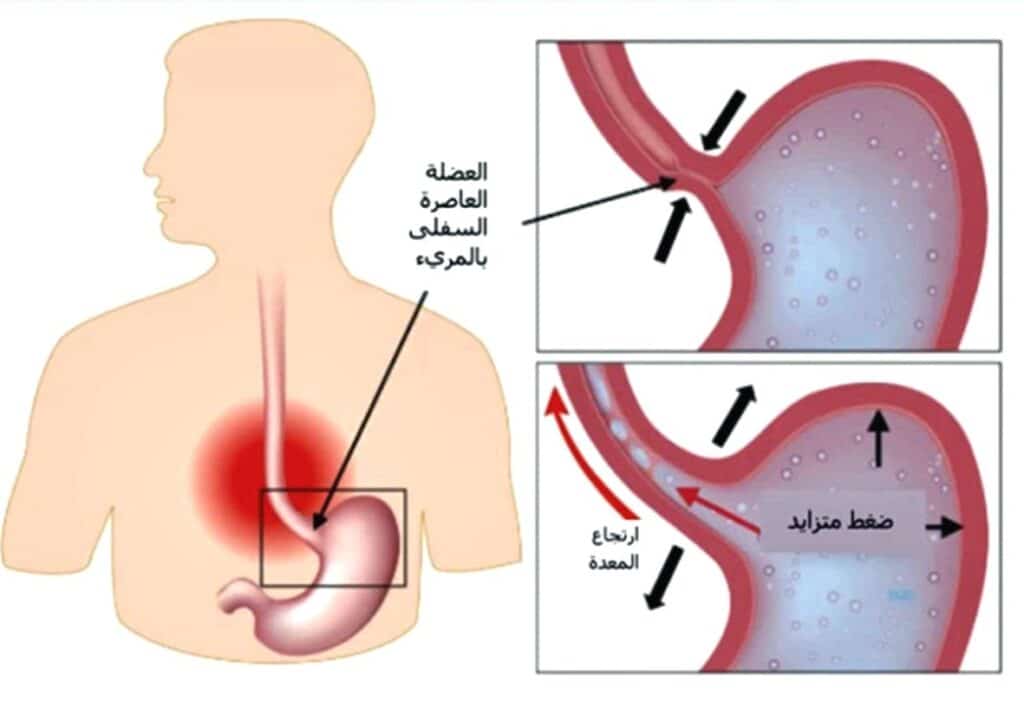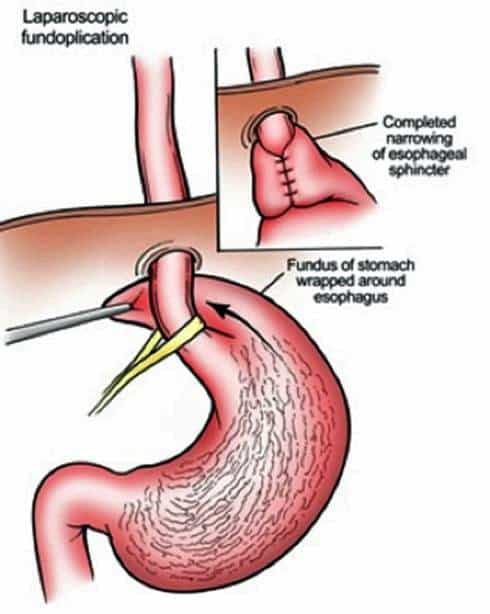
Professor Dr. Tamer Saeed
Consultant in general and laparoscopic surgery
Professor of General and Obesity Surgery - Faculty of Medicine, Ain Shams University
Fellow of the Royal College of Surgeons - London
Member of the American Society of Surgeons
Member of the International Federal Society for Obesity and Diabetes Surgery
Member of the European Society of Endoscopic Surgery
Member of the Egyptian and Emirati Associations for Obesity and Diabetes Surgery

He holds a certificate of excellence in microscopic surgery for esophageal diseases.
He holds a certificate of excellence in bariatric surgery and diabetes treatment from the SRC organization in America, which is the highest quality certificate and guarantee for patient service in bariatric surgery (the Commission for Granting Surgical Privileges for Bariatric Surgeries).
Professor Dr. Tamer Saeed aims to provide the best health service to the patient while maintaining the highest safety rates for surgeries by:
(1) The teamwork of the medical team, which aims to accurately assess the patient’s health condition and choose the type of surgery most appropriate for him.
(2) Performing surgery in the most luxurious and modern hospitals, providing the best medical care for the patient, meticulous sterilization of surgical instruments, and using the latest surgical machines.
(3) Careful and continuous monitoring of the patient’s health condition after the operation until we are confident that the desired goal has been achieved.
Gastroesophageal reflux
What are the symptoms of gastroesophageal reflux disease?
- Feeling a heartburn after eating, and this feeling increases at night.
- Pain in the chest area.
- Difficulty swallowing.
- Reflux of food or acidic liquid.
- sore throat.
- Difficulty sleeping when reflux occurs at night.
- It changes the taste of your mouth to become sour, which coincides with reflux and difficulty swallowing. It also causes chest and abdominal pain, and may even lead to a dry cough.
If your esophageal reflux symptoms are acute or chronic, or if you take medications to treat esophageal reflux frequently more than twice a week, you should schedule a consultation with Prof. Dr. Tamer Saeed.
What is gastroesophageal reflux disease?
When stomach acid regularly backs up into the esophagus, gastroesophageal reflux disease occurs, which is a tube that connects the mouth to the stomach, which can cause irritation of the lining of the esophagus.
Many people experience frequent acid reflux. The disease can be mild, occurring at least twice a week, or moderate to severe, occurring at least once a week.
The discomfort of gastroesophageal reflux can be controlled with lifestyle changes or some over-the-counter medications. However, severe cases of gastroesophageal reflux may require treatment with stronger medications or surgery.
How is gastroesophageal reflux diagnosed?
- Upper endoscopy: We insert a thin, flexible tube with a light and a camera at the end (endoscope) through your mouth to examine the inside of your esophagus and stomach. Endoscopy may reveal esophagitis.
- Acidity probe test: A monitoring device is placed in the esophagus to determine when and how long acid reflux occurs. The monitoring device may be in the form of a thin, flexible tube that is passed through your nose into your esophagus or in the form of a clip that is placed in your esophagus during endoscopy and passed out with your stool after about two days.
Esophageal manometry: This test measures regular muscle contractions in the esophagus when swallowing. Esophageal manometry also confirms the coordination and strength of the esophageal muscles.
- Upper gastrointestinal x-ray: X-rays are taken after you drink a contrast liquid that covers and fills the inner lining of your digestive system.
What are the causes of gastroesophageal reflux?
Gastroesophageal reflux disease is caused by frequent acid reflux.
When you swallow food, a circular group of muscles surrounding your lower esophagus (lower esophageal sphincter) relaxes to allow food and liquids to flow into your stomach. Then it closes again.
If the sphincter is abnormally soft or weak, stomach acid can back up into the esophagus.
This constant flow of acid irritates the lining of the esophagus, often leading to inflammation.



What are the risk factors that may lead to gastroesophageal reflux?
- Obesity
- Pregnancy
- Hiatal hernia
- Connective tissue disorder
- Smoking and alcohol
- Fatty or fried foods
How is gastroesophageal reflux treated?
There are three steps to treat esophageal or stomach reflux disease, which include lifestyle modifications, medications and surgery.
Lifestyle changes: In many cases, changing diet and taking nutritional supplements can reduce some symptoms. Losing weight, eliminating the habit of smoking and drinking alcohol, and changing sleep patterns can also help reduce the symptoms and incidence of stomach reflux.
Treatment with medications: If symptoms persist after lifestyle changes, treatment with medications may be needed.
Prescription medications may be more effective in relieving symptoms, but this step needs to be discussed with your doctor.
Surgery: Patients who do not respond well to lifestyle changes or medications or those who constantly need medications to control their symptoms should undergo surgery. Surgery is very effective in treating esophageal reflux
Gastric plication surgery - surgery Fundoplication - Nissen surgery
The surgeon wraps the upper part of your stomach around the lower esophageal sphincter to tighten its muscles and prevent esophageal reflux. Fundoplication is usually performed using a minimally invasive procedure (laparoscopy).

What are the advantages and benefits of performing laparoscopic surgery to treat gastric reflux?
- Shorter stay in hospital.
- Reduces postoperative pain.
- It is possible to return to work and daily activities within a shorter period.
- Better cosmetic result.
Before the operation
- Blood analysis, medical evaluation and X-rays, depending on your age and medical condition.
- You are asked to completely empty your colon and cleanse your intestines before surgery. You may also be asked to drink only fluids, for a day or several days before surgery.
- The night before the operation, you should not eat or drink anything except the medications that were prescribed to you.
- Medications such as aspirin, arthritis medications, and vitamin E will need to be temporarily stopped for several days to a week before surgery.
- You will be asked to stop smoking.
The day of the operation
- It is recommended to arrive at the hospital at least 3 hours before the operation.
- The doctor places a small needle into the vein to distribute the medicine during surgery.
- You will be under general anesthesia and asleep during the operation, which may last several hours.
- Most patients remain in the hospital the night of surgery, and some may need additional days in the hospital.
If gastroesophageal reflux disease is left untreated, the affected esophagus may lead to further medical complications and even turn into a pre-cancerous condition, called Barrett’s esophagus.
The patients Opinions
We offer you
The best solution for gastroesophageal reflux

